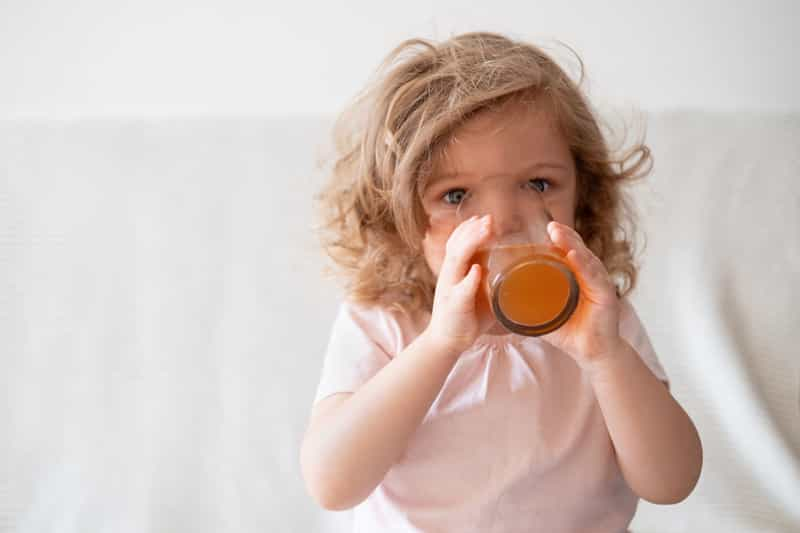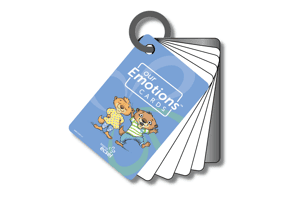
Welcome to the fourth installment in our series about the Power of Reflective Practice.
In our previous posts, we explored an early childhood educator's personal experiences and a mentor's perspective of the importance of Reflective Practice within the begin to ECSEL program, and how it has impacted their work and life.
In this article, we will look at how self-reflection and Reflective Practice can ensure a positive parenting approach for families. It isn’t just little ones coming through our doors this fall, they are all bringing their families right along with them.
Let's dive into Sierra's story and explore this together.
I am a teacher and I am a mom — two of the most important jobs out there. At first, I imagined these two roles as being mutually exclusive, but through my years as a teacher and my years since becoming a mother, I've realized that they require many of the same skills — endless patience, empathy, understanding, diligence, flexibility, nurturing, guidance, self-reflection, and emotional awareness— to reach the same end goal: supporting children’s development into well-rounded, kind, intelligent individuals with a strong sense of self.
Before becoming a mom, I spent my days as a lead pre-k teacher working with children ages 3 to 5. I usually had at least 20 children in the classroom at once with one assistant teacher for support.
As all educators (and parents) know, the start of the school year can be a chaotic and daunting time. The transition for the preschoolers moving into my pre-k classroom was particularly challenging, and preparing 3-year-olds for kindergarten is a significant process.
Despite my many years of teaching experience, I always dreaded the start of the school year because of the dysregulation that I knew would ensue. Most children would enter my classroom as strangers to routine, lacking key social skills after spending months with no one but family, unable to identify or discuss their emotions (let alone manage them), and completely out of control. On top of trying to manage the big feelings of all these little ones, lesson planning, leading curriculum activities, prepping meals, arranging centers, and everything in between, having a fully enrolled classroom also meant that we were constantly moving children between classrooms to maintain staffing ratios. If you work in an early childhood setting, you know what I'm talking about! The unpredictability, inconsistency, lack of routine, and new faces every day created an understandably unstable environment for children. Each day was a roller coaster, and I was often utterly drained once it was time to clock out. I literally needed my own nap time… just like the children!
As I reflect back on my teaching experiences, I pride myself on being a great teacher…maybe even a phenomenal one. But no matter how great you are, some days are just challenging.
I remember one day, specifically. I had a new child, whom we will call Madelyn, enrolling in my class, and I also had a float teacher in the place of my usual assistant teacher. Madelyn was struggling to settle in, and I pulled out every teacher trick I could think of.
Nothing was working! I could tell that she felt scared, anxious, and worried, on top of feeling angry that she had to go to school when she didn't want to, and sad because she wanted her parents — a melting pot of very big feelings for a very little child. The tears were flowing, and I noticed that the other children in my class were starting to test the waters a bit more than usual. By the time I was finally able to calm Madelyn down, the rest of the class had completely melted down right along with her. Before I could get my bearings, children were running around the room, throwing toys, and not even trying to hear my words. The float teacher in my classroom looked at me helplessly for guidance and I knew that it was going to be a long day. I tried my usual positive reinforcement strategies by praising the children who were working nicely in their centers, but at this point, everyone was so overstimulated that there was nothing I could do.
Thinking back on that day now, I wish I had known about the importance of self-reflection and Reflective Practice in both teaching and parenting. I could have used the tools and strategies that I know now to support Madelyn and give her the space to settle if she needed it while also tending to the needs of the other children in my classroom.
Not long after becoming a mother, I made the difficult decision to leave my classroom full of children to focus on my own children and my education. Being a mom has been the most fulfilling experience of my life. I have had the pleasure of watching my little ones grow, and it amazes me how much they can change in such a short time. But even with all the joys of motherhood – seeing their faces light up when they have those 'aha!' moments, not only reaching but exceeding milestones, slowly but surely gaining independence, and too many others to count – there are still tricky moments when I question whether or not I handled situations correctly.
For example, over the last several years, my soon-to-be 5-year-old son has struggled with anxiety about his dreaded doctor appointments. His anxiety and worry turn into frustration and anger because he does not want to visit the doctor, even when my husband and I reassure him that it is just a check-up. He throws the biggest tantrums a child can muster, screaming and crying while prolonging getting dressed to the point where he makes himself sick.
I, too, would become frustrated quickly in those moments because, as his mother, I know how important it is that we visit the doctor regularly to keep him well, but I could not get him to calm down long enough to hear my words. After several attempts to calm him down to no avail, my feelings would quickly turn from being frustrated to overwhelmed and I would raise my voice, which never helps the situation. Before our car even pulled into the doctor's office, the tantrums would escalate — it was like my son had a sixth sense. Doctor's visits became so difficult for us that by the end of the appointment, we would all feel defeated and exhausted.
Now, I know that all children are different, but what mine have in common is their ability to throw tantrums.

My daughter, who is 2, is going through the typical transition from being a toddler to wanting to be more independent. Boy, has this stage had its own set of challenges and quirks! My daughter has a particularly unique quirk... that girl loves her cup! Within the last year, she has started trying to pour her own drink instead of asking for help. I can't tell you how many times I have walked into a small ocean of her spilled drink on my kitchen floor. When I ask for her help cleaning up, she throws a tantrum unlike any other (even those of her older brother’s pre-doctor appointments are no match). She yells, “NO!,” cries, and stomps away. As her mom, I instantly get frustrated because I want to support her independence, but also want to teach her that if she makes a mess, she needs to help clean it up. In the past, I felt like it was a lost cause. I would clean up the mess and let her throw her tantrum where she would continue crying for 10 minutes, and nothing I tried would calm her down – redirection, allowing her to clean, doing it myself – NOTHING. At that point, Mama was on the struggle bus! 🚌
Thanks to my begin to ECSEL training, I now know that my reactions and responses to my children's big feelings and emotional outbursts are so important. Even though I thought I was trying my best, those tricky moments made me feel so overwhelmed and frustrated… and I would show it.
They pick up on the words, tone of voice, body language, and actions of trusted adults in their world— including Mama. When I would respond to their emotional outbursts by reacting at their level, it only increased their feelings, making it more likely that they would respond similarly in the future, and no one wanted that.
So, what have I done to work on my own reactions so I could really be my best self and mother?
Recently, I have been reflecting on my past responses, actions, and reactions both as an early childhood educator and as a mom.
Self-reflection has easily become a staple in my life. Without it, I wouldn't have been able to identify what wasn't working for me as a mom and find strategies that would work better. As a part of furthering my self-reflection and emotional awareness, I was introduced to Reflective Practice. My first reaction was, “Wow, this makes so much sense,” and my second reaction was, “Why haven’t I stumbled across this sooner?”
The more I learned about the steps involved in Reflective Practice, the more I thought about how I could utilize this concept to support positive parenting during challenging times, such as preparing my son for his check-ups or supporting my daughter's need for independence. Since then, I have made Reflective Practice a part of my daily life and parenting approach.
Now after a challenging situation, I will immediately pause to reflect on my reaction and consider what went well and what I can work on to better the experience next time. Reflective Practice also helps me think about how I will handle challenging behaviors in the future. For example, when it's time for an upcoming doctor's appointment, I can reflect on how I've handled preparing my son in the past: What went well? I gave him reminders as the appointment date got closer. What didn't go well? I could have taken steps to prevent becoming overwhelmed and reacted better in the heat of the moment. What can I change to make our routine surrounding doctor's appointments successful? I can utilize visual tools to help my son express his feelings effectively.
 Reflecting on strategies that haven’t worked with my son, strategies that worked well, and strategies that could work even better brought me to my favorite ECSEL tool: Our Emotions Cards. Visual cue cards that help children to identify their feelings and those of others.
Reflecting on strategies that haven’t worked with my son, strategies that worked well, and strategies that could work even better brought me to my favorite ECSEL tool: Our Emotions Cards. Visual cue cards that help children to identify their feelings and those of others.
Specifically, with my son's anxiety surrounding doctor visits, I use a combination of Our Emotions Cards, language that I learned from my ECSEL training to support his feelings, and Reflective Practice. And what a powerful combination it is! Each time my son begins to experience the feelings that come from anxiety, we use Our Emotions Cards so that he can identify what he is feeling. He is also able to use the mirror on the cards to see his facial expression at the moment. We then work together to determine what we can do to help him feel better.

Recently, this looks like bringing one of his stuffed animals to help him feel better and more secure when we have to visit the doctor. I can even use Our Emotions Cards myself to show him what I’m feeling in these moments: “I’m so proud that you used words to help me understand.” Even with the drastic improvements I’ve seen around doctor’s visits, I still always make time to self-reflect afterward. We are always learning and growing, and we can always improve how we support our children. Reflective Practice has helped me better understand how I can help my son in these difficult times and develop empathy by considering his perspective…because, let's be honest, even adults dislike going to the doctor sometimes.
Remember when I said all children are different? Well, self-reflection helped me realize that while some strategies may work well for my son, they won’t necessarily work the same for my daughter. Incorporating the steps of Reflective Practice into my self-reflection helped me to find different strategies that would work for my daughter when she tries to pour (and inevitably spills) her drink next time.
I start by internally describing what happened, identifying my feelings about the situation, evaluating what went well and what didn't, analyzing why things went well or didn’t, considering what else I could have done, and determining what I can do differently next time with a solid action plan. While working through these steps, I came to my own 'aha!' moment by realizing that my daughter does need to learn how to pour her own drinks and that she will only learn through practice. Spills can be frustrating —we all have accidents and we all make mistakes (not just little ones), but they are a part of growth, independence, and mastery. So, I developed an action plan that would help me respond in a positive way. Knowing that my daughter would copy my reactions, I started taking a deep breath every time a drink was spilled before responding. This helped me take a moment to focus on what was actually happening instead of immediately reacting strongly. Since doing this, my daughter has started taking a deep breath before she fills her cup, which has actually helped lessen the spills and helped her gain more control over the situation!
This is a shining example of why it's important to self-reflect and be aware of and manage our own emotions; our children are mirrors of us and our actions shape how they develop and grow. Now every time she spills a drink she says, “It's okay if you have an accident!” While this may seem like a small feat, it is a big deal for me because I know she learned this valuable life lesson because I took the time to self-reflect, work on my reactions, and be the best mother — not just for my children, but for myself, too.
Now that I have learned, practiced, and mastered the skills of self-reflection, emotional awareness, and Reflective Practice, I think back on my teaching years for how I could have supported Madelyn and the rest of my class in these moments of dysregulation. I could have paused to self-reflect, express my emotions constructively, and guide my entire class through group regulation strategies before returning to Madelyn to support her co-regulation, ask about her feelings, and help her find ways to feel better. While my days as a classroom teacher may be in the past, the skills I have gained in self-reflection, emotional awareness, and Reflective Practice have helped me as a teacher for my children, and with teaching, mentoring, and coaching other educators to master these same skills.
As a mom, I may never stop teaching, and I certainly will never stop learning and growing. “Reflective Practice takes practice,” and I remind myself of this each and every day as I continue to reflect, grow, and become my best self.
Read the entire Reflective Practice Series
These Posts on Parenting
Housman Institute, LLC
831 Beacon Street, Suite 407
Newton, MA 02459
info@housmaninstitute.org
(508)379-3012
Explore
Our Products
Legal
Connect
Contact
Join our Mailing List!
Subscribe to receive our newsletter, latest blogs, and ECSEL resources.
We respect and value your privacy.
No Comments Yet
Let us know what you think